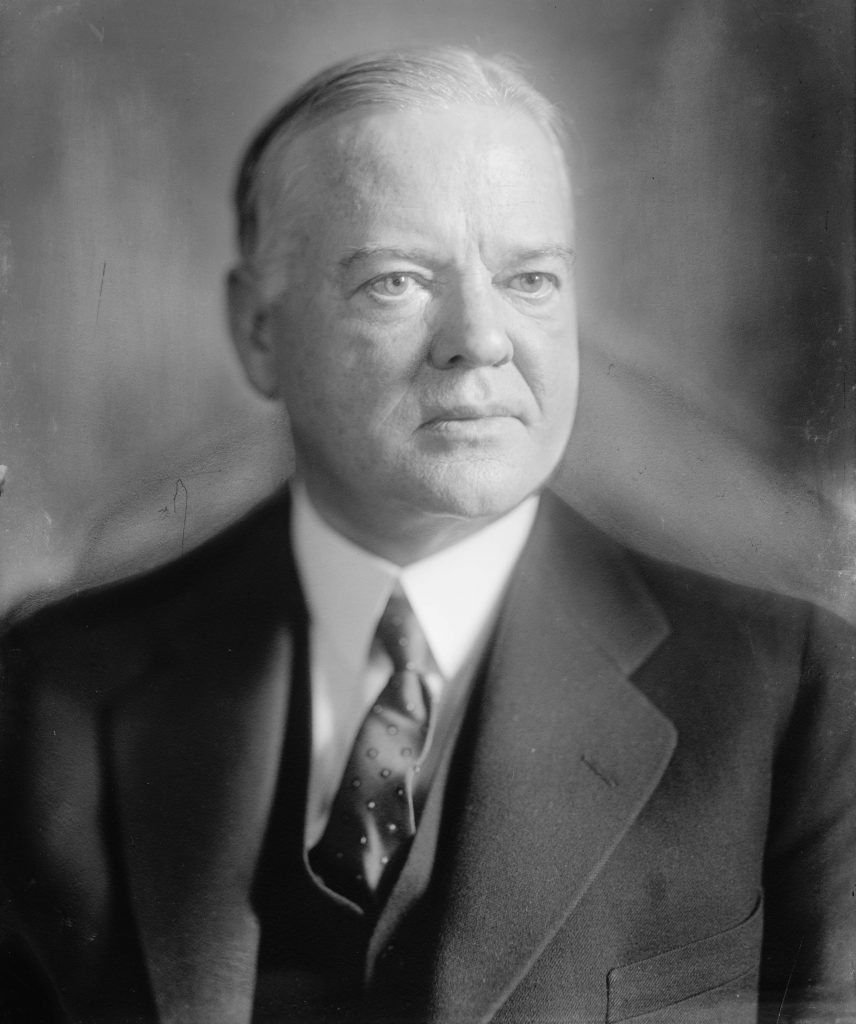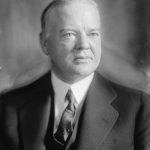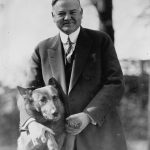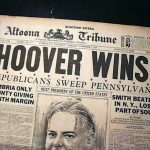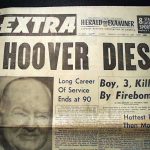Herbert Clark Hoover (August 10, 1874 – October 20, 1964) was an American engineer, businessman and politician who served as the 31st President of the United States from 1929 to 1933 during the Great Depression. A Republican, as Secretary of Commerce in the 1920s he introduced themes of efficiency in the business community and provided government support for standardization, efficiency and international trade. As president from 1929 to 1933, his domestic programs were overshadowed by the onset of the Great Depression.
A lifelong Quaker, he became a successful mining engineer with a global perspective. He built an international reputation as a humanitarian by leading international relief efforts in Belgium during World War I, 1914-1917. When the U.S. entered the war in 1917 he became “food czar” as head of the U.S. Food Administration with charge of much of the nation’s food supply and a massive advertising campaign to help consumers adjust and save. He worked well with President Woodrow Wilson and the cabinet, and gained a large national audience. After the war, he led the American Relief Administration, which provided food to the inhabitants of Central Europe and Eastern Europe. Hoover was popular among progressives as a potential candidate in the 1920 presidential election, but his candidacy quickly petered out. Republican Warren G. Harding won and appointed Hoover as Secretary of Commerce. Hoover was an unusually active and visible cabinet member, becoming known as “Secretary of Commerce and Under-Secretary of all other departments.” Hoover won the Republican nomination in 1928, and defeated Democrat Al Smith in a landslide. Hoover avoided the anti-Catholicism that hurt Smith, but in a time of peace and prosperity his success was highly likely.
